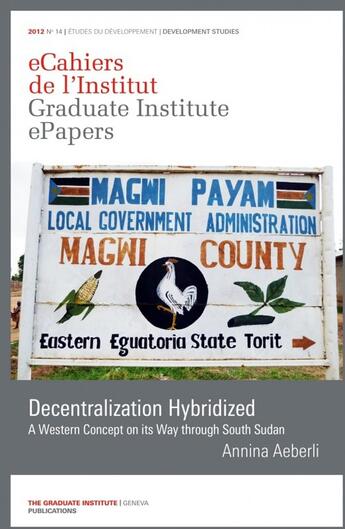Résumé:
South Sudan is undergoing a process of internationally-supported state building of which decentralisation forms part. For the people, decentralisation is understood as a right to self-rule based on native-stranger dichotomies and as a means of appropriating and incorporating an abstract and... Voir plus
South Sudan is undergoing a process of internationally-supported state building of which decentralisation forms part. For the people, decentralisation is understood as a right to self-rule based on native-stranger dichotomies and as a means of appropriating and incorporating an abstract and distant state into the local context. The South Sudanese government, in contrast, sees decentralisation primarily as a tool for service delivery and development. Conversely, the international community, in its desire to guarantee international stability through the creation of Western-style states all over the world, sees decentralisation as one tool in the state-building toolbox. These different interpretations of decentralization may not only lead to misunderstandings, but different groups and different ways of understanding decentralisation have interacted throughout history, and attempts to impose a particular understanding on other actors continue. Annina Aeberli examines this hybridisation of state `decentralisation´ and argues that the international community and the government cannot and should not try to ignore people´s understandings and expectations: a state - in whatever form - always depends on the acceptance of the people.
Donner votre avis









